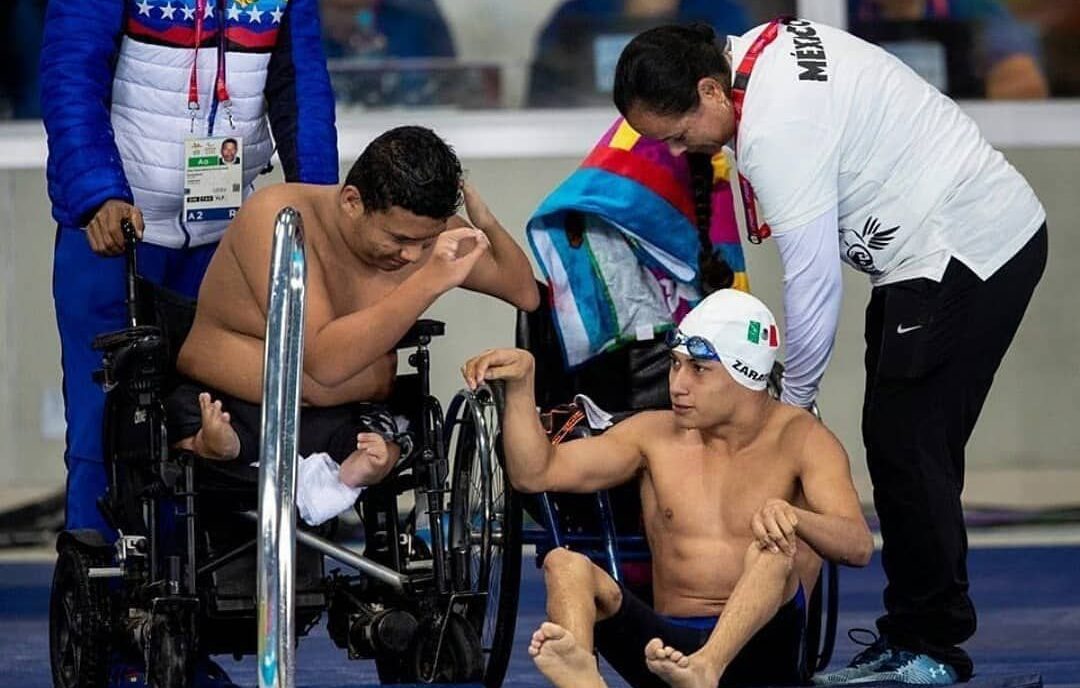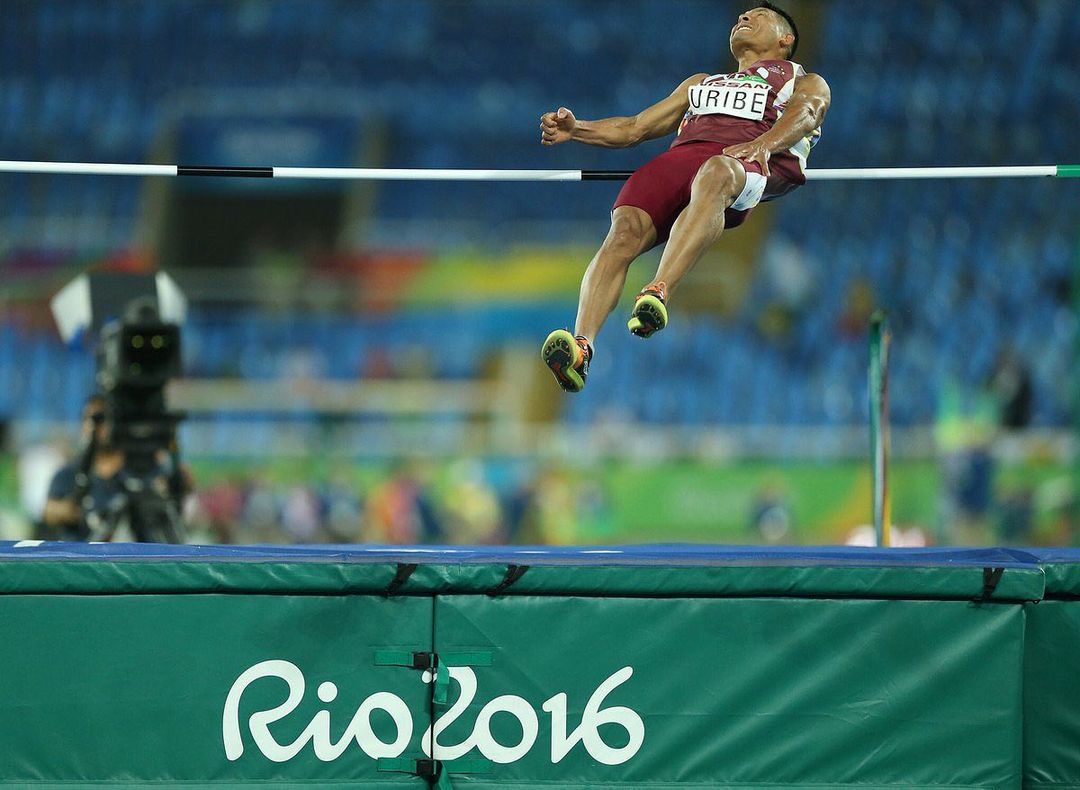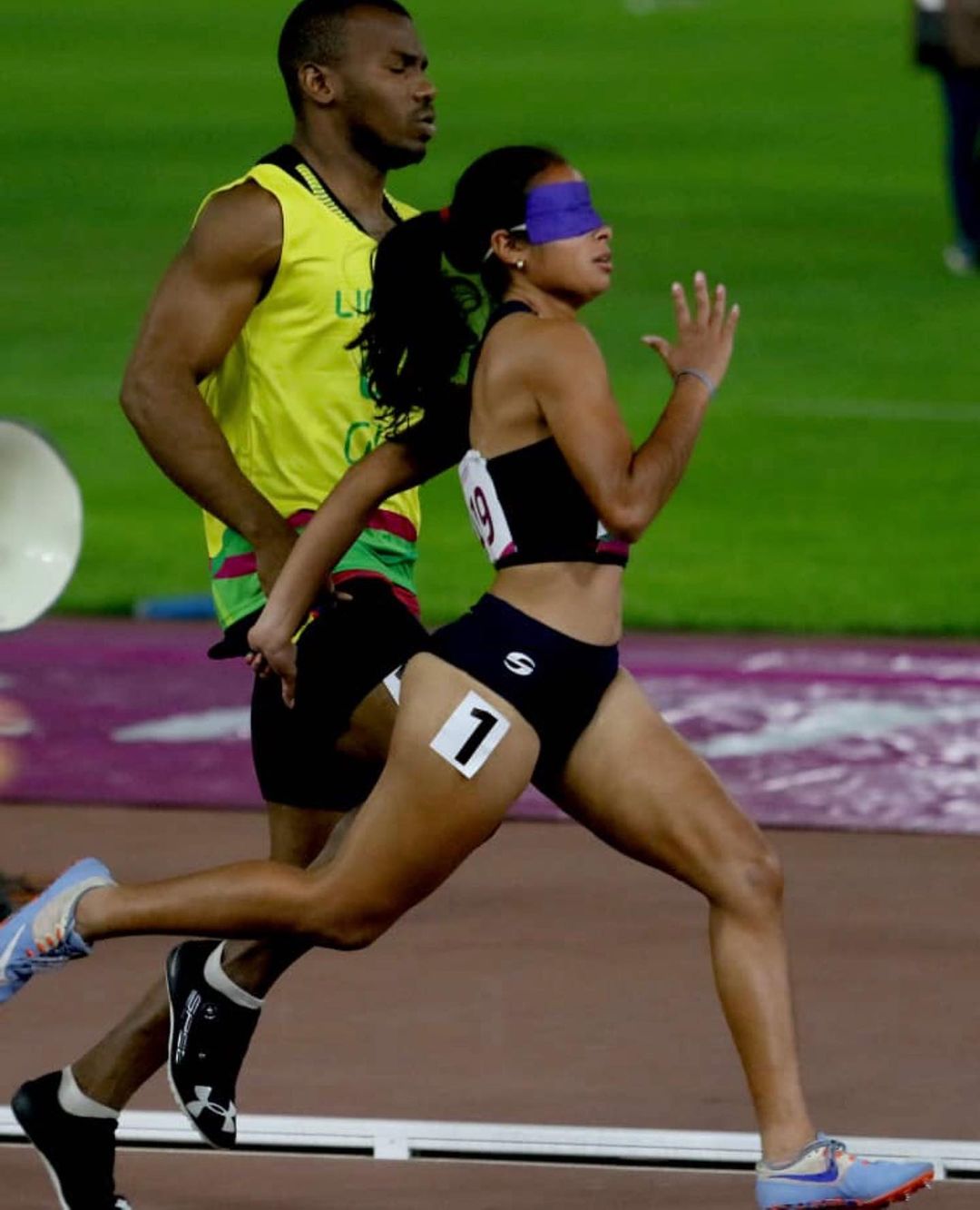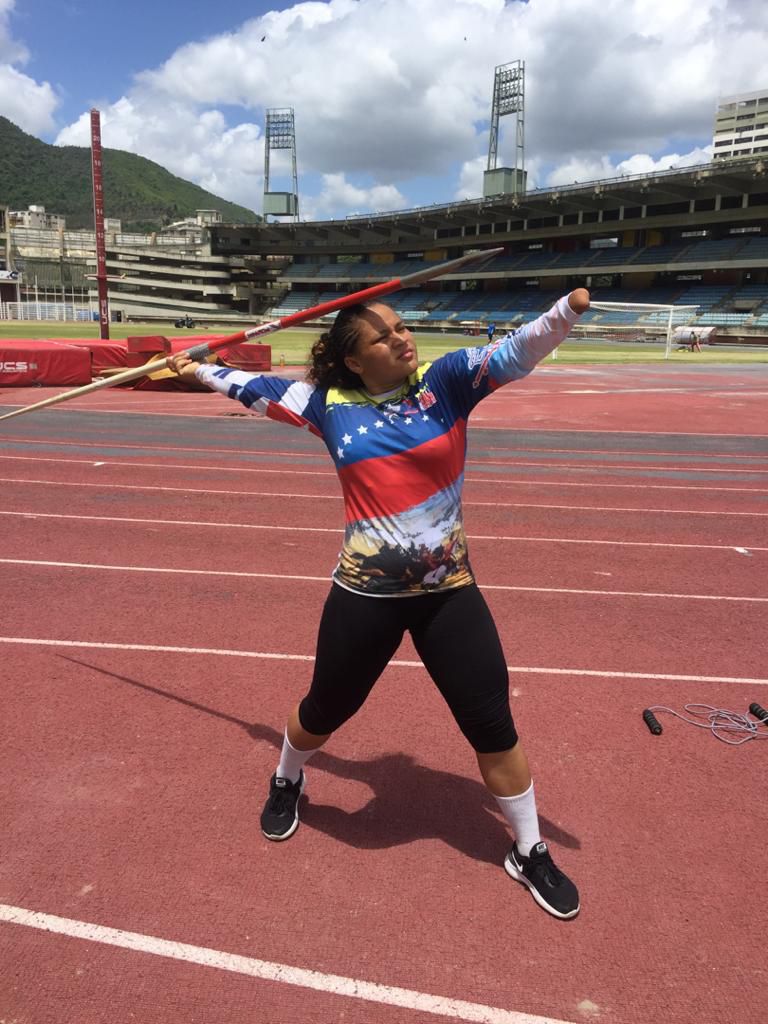The Long Road to Tokyo of Venezuelan Paralympic Athletes
Practicing a Paralympic sport in Venezuela implies overcoming both the physical difficulties and the national crisis. Here are some of the stories of the athletes in the Venezuelan delegation


José Montilla’s Big Accomplishment
The first time José Montilla competed, he was terrified. In this competition, he would swim alongside people he considered “completely normal.” His swim coach wanted to put him to the test, because José had never considered himself a competitive athlete; he was born with arthrogryposis multiplex congenita and had to undergo seven operations to straighten his feet. Being in the water was his therapy.
That day, more than ten years ago, José came first. Today he’s in the Olympic Village in Tokyo. He’s 20 years old and has been preparing for a long time for his first Paralympics. In 2017, he won four gold medals, and in 2019, he qualified to go to Japan in the Parapan American in Lima, Peru.
José competes in breaststroke swimming for the 50 meters SB2 modality. The mark set by Tokyo to qualify in this Paralympic competition is 3’20’’ but José did it in 1’39’’.
“When I checked the marks I needed for the Paralympics, I said: man, I can really be here! I put my headphones on, changed and worked out for four hours, four kilometers. I knew it wouldn’t be easy, we’re talking about the Olympics. In the Paralympics, there’s great diversity, when athletes have a more severe disability than mine they become an inspiration. I really appreciate being here today.”

José Montilla (left) At the Parapan American in Lima, 2019.
For his family, the swimmer also represents an example of improvement and personal growth. His father, Luis Montilla, explains:
“I’m very honored, really. José has been our mental and emotional support, always wanting to face challenges even when he didn’t have floaters. People believe that because they have disabilities there’s not much they can do in life; but when people like José set a goal, nothing can stop them. Seeing these athletes makes you realize nothing should be an excuse, especially for those who have their full faculties.”
Venezuela has participated in eight editions of the Summer Paralympic Games since 1984 and has so far obtained 17 medals: one gold, five silver and eleven bronze. At the Paralympic Games in Tokyo in 2021, which began on August 24th, the delegation of 26 athletes will compete in the disciplines of powerlifting, judo, table tennis, cycling, swimming and athletics.
Clara Fuentes Stares at The Sky
Clara Fuentes, born in Caracas 23 years ago, will compete in the 41kg powerlifting category. This para powerlifting athlete was a junior champion with a Pan American record in 2017 and qualified by competing in Dubai in 2019:
“One day I was shopping and a girl with the same disability as me approached me. She asked me if I practiced a sport. I had never met anyone with our disability who would, so she asked if I wanted to know more about her training. I said yes, and her coach told me that if I worked hard and consistently I could accomplish a lot. They were right,” she says with a wide smile on her face.
Clara considers that mental preparation is essential; and her coach, a strict and disciplined teacher, has always taught her that the key to successful training is to record her movements and keep a positive mindset at all times. Her path to Tokyo is characterized by her dedication:
“Before I train, I listen to ‘Creeré’ (Believe) from Tercer Cielo, a song that helps me remember that you have to pause and focus. I always wanted to travel to Tokyo, even before taking up sports. Today, I fulfilled my dream thanks to the effort and the nightly prayers before the qualifying results on July 13th. For me, my disability has never been a limitation to play sports.”
Being in the Paralympics means that you are one of the best athletes in the world. It’s not easy to classify because the level is very high, many of the people who are within the ten categories of disability established by the Paralympic committee have similar marks to conventional athletes. Such is the case of Rafael Uribe, a high jump athlete, who qualified for the T64 high jump.
Rafael Uribe’s Highest Jump
“I went to Rio when I was 31 years old and at the national level, my mark was like that of athletes without difficulties. Today, I’m competing at 35 years old and in my career, I’ve won third place in the Paralympic Games in Rio 2016, fourth in the Parapan American Games in Lima 2016 and fifth in the World Cup in Dubai 2019.”
One of Rafael’s legs is 8.5 centimeters longer than the other. From a young age, after watching the 1992 Barcelona Olympics, he decided that he wanted to jump.
“In high school, I played basketball.” Sure, he was very bad at it, so he just ran and jumped all over the field.

Rafael Uribe in Rio, 2016.
In 2008, he got accepted to Universidad Central de Venezuela, and he practiced different disciplines, such as long and high jump, or 400 m hurdles until 2013.
“After I qualified to go to the Paralympics in 2014, I specialized in the high jump. My discipline demands a lot of strength, elasticity and power resources but this shouldn’t intimidate you. People have always told me that I was small for my discipline, but here I am. If I could do this my whole life, I’d definitely do it. Sport teaches you so much, and the courage to get to where we are has incredible merit.”
Rafael Uribe has been on the Venezuelan Paralympic team for nine years, and he’s one of 16 athletes in the para-athletics category for these games.
The Paralympic Committee of Venezuela began in 2003, in conjunction with existing sports federations such as the Venezuelan Federation of Wheelchair Sports (Fevesruedas), the Venezuelan Federation of Sports for People with Cerebral Palsy (Fevedepc), the Sports Federation of the Blind of Venezuela (Fepocive) and the Venezuelan Sports Federation for Intellectual Disability (Fevepodin). They’ve been in charge of taking our athletes to these competitions ever since.
Naibys Morillo Is Third in The World
Naibys Morillo, from Yaracuy, is 21 years old and won gold in the International Youth Games in Sao Paulo in 2017. She represents Venezuela in the F47 javelin throw.
“In 2019, I came third in my qualifying competition in Dubai. There I threw 40.95 m, but my best record, and the one that made me third in the world, is a mark of 42.45 m.”
In 2015, the athlete had a good enough mark to go to the Toronto Parapan American 2015, but the authorities called her to tell her that she wasn’t going days before the delegation left.
“That saddened me because they were meant to be my first Parapan American games. I felt that I didn’t want to continue training because they didn’t value my effort. But with help and a lot of advice, I decided to move on, and here I am, a few days away from achieving every athlete’s dream: competing in the great Paralympic Games representing my country.”
On Naibys’s social media, she says that her disability used to be a weakness, that she would sometimes hide her arm out of shame. However, today she sees herself as a strong and determined person.
“My advice to all youth and to people with some type of disability is that there are no limits when you have clear goals. If I and the rest of my teammates can do it, everyone can do it.”
Linda Pérez’s High Speed
Linda Pérez represents Venezuela on the racetracks. She’s 23 and she won silver in the 400 m at the Lima 2019 Parapan American Games. Linda arrives at the Tokyo Paralympics with T-11 form of visual impairment. With one foot on the cue and an accompanying rope, she will nervously prepare to go for a run alongside her guide. Linda is a sprinter and runs 100m, 200m and 400m flat.
“Imagine the challenge it represents for me because it’s the first time that I’m going to compete in an Olympics, being one of the smallest in my category. It’s that adrenaline of wanting to do your best, I want people to look at the screen and see how I’ve improved.”
For Linda, the best part of running and being an elite athlete is being able to be a role model for others, showing that there are no physical limitations. However, she admits that competing can get tough and difficult for her to process. Linda’s mark is from last year, and was high enough to qualify for the Paralympics, but in this year’s qualifying competition she failed to register her mark due to an injury in the last 40 meters of the competition, which her partner and guide Álvaro Cassiani experienced by her side.
Álvaro Cassiani is a former athlete from Maracaibo with more than 16 years of experience, who won several medals in South American championships. After he retired, a coach asked him to be part of the team of guides for a runner with visual impairment.

Linda Pérez and her guide Álvaro Cassiani
“At first it was very different from my life as an athlete, it was a rough new experience because I wasn’t used to it. When you work with people with disabilities, sometimes you find yourself lacking in many things and you have to be flexible in others.”
Álvaro has been Linda’s eyes on the track for two years. The work of the guides requires great strength, capacity and speed to be able to support athletes with visual disabilities. A guide keeps pace with the athlete, in sync. Álvaro says it’s like being in a synchronized swimming competition.
“When we’re running, I talk to her on the track, ‘go faster, do this, finish it off.’ And so we coordinate the race. We become one. There’s emotional and moral support, advice, whenever one of us feels defeated the other has to be there. There’s a mental and emotional connection.”
A Difficult Victory
How to get to Tokyo without sponsorship and with a lack of financial resources to be able to afford supplements, vitamins, training material, an adequate protein diet and sometimes the lack of resources on the part of sports institutions?
“The athlete must not only look for themselves when they have to compete,” says the guide Álvaro Cassiani, “If you are an Olympic, world athlete, as is the group arriving in Tokyo for the Paralympics, but there must also be respect for them, because the effort that is made is enormous.”
These Paralympic athletes are supported by some scholarships granted by the Ministry of Sport, from which they take the travel allowance. If they win a medal, the prize money allows them to keep training for a few years until another competition comes along and they try to win again.
“If you are below a World Cup player and you see that they don’t support them, what would you imagine?” Cassiani continues. “I think the teams keep going because they are incredible at what they do.”
Paralympic athletes have so much to prove on every podium and that will resonate with us, now and always. The determination of Venezuelan athletes who run, swim, jump and train in the face of difficulties is an example of effort and dedication, which Linda Pérez sums up very well:
“What I love most about my sport is feeling that I am useful in society, you know? At least in this medium, if I grab a medal or diploma I can bring joy to Venezuela and that we’ll be considered what we are, the representation of resilience and improvement.”
Caracas Chronicles is 100% reader-supported.
We’ve been able to hang on for 22 years in one of the craziest media landscapes in the world. We’ve seen different media outlets in Venezuela (and abroad) closing shop, something we’re looking to avoid at all costs. Your collaboration goes a long way in helping us weather the storm.
Donate





